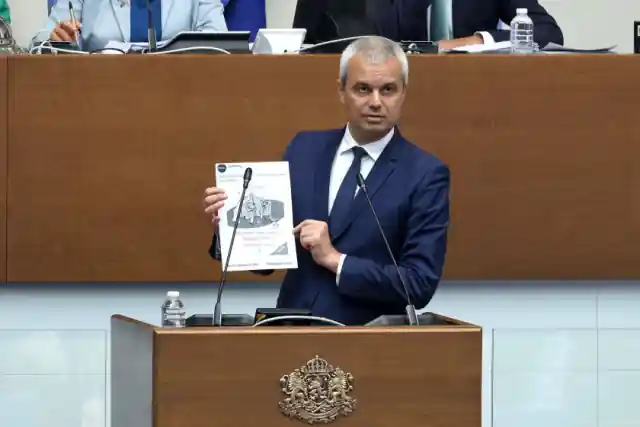
In a heated parliamentary session that lasted nearly four hours, the Bulgarian Parliament adopted changes to the Law on School and Pre-School Education, effectively banning the promotion of ideas and views related to “non-traditional sexual orientation or determination of gender identity other than biological.”
The legislation was spearheaded by the pro-Russian party “Revival” (Vazrazhdane) and its leader Kostadin Kostadinov, with proponents arguing that public propaganda normalizing non-traditional sexual orientation is unacceptable and contradicts the Bulgarian constitution.
Out of 171 representatives, 154 voted in favor of the bill, eight voted against, and nine abstained. Notably, seven deputies from “We Continue the Change-Democratic Bulgaria” (WCC-DB) and one from GERB were among those who opposed the legislation.
Following the first reading, where initial approval was granted, the bill moved to a second reading amidst continued debates, with the entire WCC-DB group voting against it.
The new law defines “non-traditional sexual orientation” as different from the “generally accepted and embedded in the Bulgarian legal tradition concept of emotional, romantic, sexual or sensual attraction between persons of opposite sexes.”
Proponents claim the bill is a necessary measure to protect children from socio-cultural models that do not align with Bulgarian legal traditions, particularly near educational institutions.
Minister of Education and Science, Galin Tsokov, expressed support for the bill’s motives during a parliamentary committee discussion but criticized its “vaguely worded and controversial” language, suggesting it could complicate implementation. Tsokov was notably absent during the final debates.
Yordan Tsonev from the Movement for Rights and Freedoms (DPS) voiced support for the bill, emphasizing the importance of raising children according to binary gender principles.
Petar Nikolov from GERB echoed these sentiments, arguing against the promotion of alternative sexual orientations and underscoring Bulgaria’s “Christian essence.”
His colleague, Delyan Dobrev, called for an end to the debate, describing it as a contest of support for the bill.
On the opposing side, the Bulgarian Socialist Party (BSP)’s Georgi Svilenski and former party leader Kornelia Ninova referenced materials from the NGO “Rainbow Hub,” alleging they contained explanations of non-standard sexual practices.
Ninova positioned herself against what she termed “gender propaganda.” In contrast, Elisaveta Belobradova from WCC-DB criticized the bill as populist and divisive, arguing that it strays from Christian values and instead fosters community division.
The debate grew particularly contentious when Kostadin Kostadinov cited a foreign-authored textbook on sexual education for children up to six years old, arguing that such education should be prevented at a young age.
Following his remarks, a protest against the law was organized for the evening, demanding the bill’s rejection and stronger measures against student harassment based on sexual orientation and gender identity.
The session was marred by interruptions and personal insults, particularly between Yavor Bozhankov from WCC-DB and members of “Revival.”
At one point, deputies from Kostadinov’s party menacingly followed Bozhankov, prompting the presiding parliament to intervene. Despite these disruptions, the deputies eventually moved to a second vote, cementing the bill’s passage.
As the nation grapples with the implications of this controversial legislation, the debate over the role of education and societal values in Bulgaria is poised to continue.
This article was created using automation technology and was thoroughly edited and fact-checked by one of our editorial staff members
